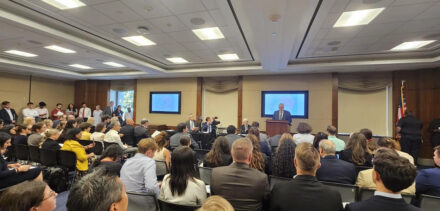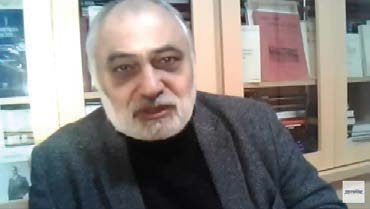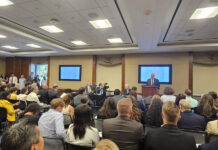WATERTOWN — Prof. Ruben Safrastyan spoke at the Armenian Democratic Liberal (ADL) Party press online lecture on February 16 on recent developments in Turkish-Armenian relations.
Safrastyan is director of the Institute of Oriental Studies of the Armenian National Academy of Sciences, a former counsellor of the Armenian Embassy in Germany, and author or editor of 12 books. He is also founding editor of the academic periodicals Turkic and Ottoman Studies and Contemporary Eurasia, as well as editor of the academic yearbook Peoples and Countries of the Near and Middle East.
Organizer of the Zoom series and Beirut’s Zartonk newspaper editor Sevag Hagopian welcomed the participants and turned over the (virtual) podium to moderator Hagop Avedikian, editor of Azg newspaper of Yerevan. Avedikian provided a biographical sketch of Safrastyan. As background, Avedikian observed that Turkish-Armenian negotiations are not new, noting the meeting of Turkish Foreign Minister İhsan Sabri Çağlayangil in the late 1970s with representatives of three Armenian political parties, and the three prior attempts at establishing diplomatic relations in the post-Soviet era.
Safrastyan began by providing a background to the current attempt at “normalizing” Turkish-Armenian relations after the Armenian defeat in the 2020 Artsakh war, which upset the geopolitical status quo in the south Caucasus. Russia now has to deal with Turkey as a serious rival for influence, he pointed out. While Turkey failed in becoming a signatory to the trilateral agreement of November 9/10 2020 or joining the peacekeeping forces in Karabakh, it was able to participate in a joint Russian-Turkish monitoring center in Aghdam with 60-70 Turkish officers.
Safrastyan placed great importance on the Shushi agreement between Turkey and Azerbaijan of June 15, 2021, which sets the foundation for a deeper integration of political, military and economic relations between the two countries, following the model of the Russia-Belarus union. Safrastyan saw this agreement as a step on the path to realization of Pan-Turkic plans, and declared that in the future Turkey would want Central Asian Turkic nations to join the union. He found Turkey under President Recep Tayyip Erdogan to be fundamentally following Pan-Turkic ideology, mixed in with some neo-Ottomanist and Pan-Islamic elements.
Safrastyan pointed to a new development which for the first time allowed Turkey to directly influencing the Kremlin domestically. This is the development of the Moscow Azerbaijani community, with very rich oligarchs who are in contact directly with the Russian political elite.








